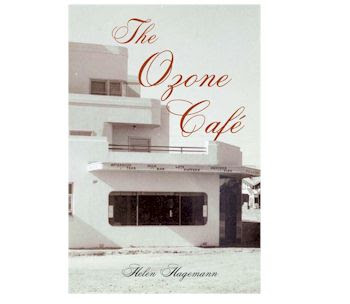Snake Charmer
She loved
the way the snake curled around her V-neck sweater, his hard diamondback pattern
shifting in the sun. It was unseasonably hot for early November, and she could
smell its animalistic odour, like her own sweat. She liked the way it felt,
slick as oil, its firm sliding muscles, tense and locked now, ready to spring –
to strike.
During the
year the townsfolk had a picnic and contest to see how many diamondbacks they
could pull out of the ground. There were prizes for the heaviest snake, the
longest snake, the first one caught and the last one caught.
Georgia won first prize for the smallest
snake, naming him Flush. Flush was only twelve weeks old, so she started to train him
and knew that later he would be entered into the pit. The “pit” as it was
commonly called was a feast of snakes, all writhing, crawling, twisting over
one another. The men bet on how many rats, mice and red meat each snake could
eat. Usually it was Rattlesnake Queen who won every Saturday, consuming two
rats and five mice, sometimes more.
Georgia hoped that Flush would become the
big boss in the pit, taking home the prize.
However, weeks, months passed and still
Flush remained small.
Matlock, Georgia’s husband said, ‘You have
to feed him some of those ghost rats, the white ones with pink feet. That’ll
bulk him out.’
Georgia opened the spring-hinged door at
the top of the cage. She sat the rat on the door, letting it ratchet inwards.
The rat plopped to her feet, her long pink tail ticking back and forth like a
clock counter. Flush, coiled in the corner, a tiredness in his demeanour,
rippled slightly. The rat sat upright and began cleaning her underbelly with
rhythmic and graceful brushes.
Georgia hissed at Flush. ‘Go boy, lunch!’
Inquisitive, Flush uncoiled and seemed to
be caging the rat with his right eye. The rat darted forward and sat on Flush’s
head, then ran down the length of his body and back again, as if carrying out a
daily massage.
Georgia, her legs almost folding underneath
her, watched on. The rat was not trembling or frozen in fright, instead it
patiently licked Flush’s face. In some divine fancy or adoration, she used a
circling motion over his mouth and eyes like a gentle lover.
Georgia heard Matlock’s footsteps and
called out. ‘Take a look at this!’
Matlock looked down into the cage, instead
of Flush opening his jaw to swallow the rat, his darting tongue surged forward,
as if ready, in response, to cleanse the rat’s head.
‘I can’t understand it,’ said Georgia. ‘I
know a lot about animals, about fully-grown snakes eating rats, about us eating
rattlers, our yearly round-ups, but nobody, nobody in this great southern town
could tell me that a rat and a diamondback would EVER become friends!’

































